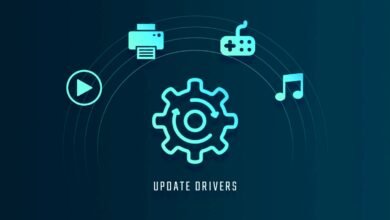The Most In-Demand Programming Languages to Learn in 2024

Python, Java, JavaScript, and C++ are some of the most in-demand programming languages on the market right now for building websites and apps.
It is very helpful to learn a coding language if you want to get better at writing or work in the tech field. It helps you get better at technology, figure out how to fix things, and find good-paying work.
It might be hard to choose which computer language to learn first when there are over 700 of them. The article talks about the best programming languages to learn in 2024. Which one you choose will depend on what you want to develop.
EXPLORE THE CONTENTS
Programming Languages and the job market
The job market highly values proficiency in specific programming languages, with employers seeking developers skilled in languages that align with their project requirements and industry demands.
Understanding the landscape of popular programming languages can guide aspiring developers to make informed career choices.
Popular Programming Languages in the UK
Python
Python is renowned for its versatility, readability, and extensive libraries, making it a top choice for various applications, including web development, data analysis, artificial intelligence, automation, scientific computing, and machine learning. Its simplicity and developer-friendly syntax attract beginners and seasoned professionals alike.
Also Read: How to Become a Python Developer in 2023
JavaScript
JavaScript remains indispensable for front-end and back-end web development, powering dynamic and interactive web experiences. With frameworks like React.js and Node.js, JavaScript enables the creation of modern web applications, single-page applications (SPAs), and server-side applications.
Java
Java’s platform independence, scalability, and performance make it a staple for enterprise-level applications, particularly in industries like finance, healthcare, e-commerce, and telecommunications. It is used in building robust and secure software solutions, including web applications, mobile apps (Android), enterprise systems, and large-scale data processing.
C++
C++ is renowned for its efficiency, performance, and low-level control, making it ideal for system programming, game development, embedded systems, high-performance applications, and software requiring direct hardware interaction. Its versatility extends to applications in domains like aerospace, automotive, gaming, finance, and scientific computing.
Swift
Swift is Apple’s modern programming language for iOS, macOS, watchOS, and tvOS development, known for its safety, speed, and developer-friendly features. It is used in creating native mobile apps, including consumer apps, enterprise solutions, games, utilities, and multimedia applications for Apple’s ecosystem.
Ruby
Ruby’s simplicity, productivity, and elegant syntax make it suitable for web development, scripting, prototyping, and building web applications rapidly. It is used with frameworks like Ruby on Rails for developing database-backed web applications, e-commerce platforms, content management systems (CMS), and startups.
Rust
Rust’s focus on safety, concurrency, and performance makes it valuable for system programming, software development, and projects requiring memory safety, parallelism, and reliability. It is used in areas like operating systems, network services, game engines, embedded systems, and performance-critical applications.
Go
Go, also known as Golang, is praised for its simplicity, efficiency, and built-in concurrency support, making it ideal for building scalable and concurrent applications. It is used in cloud computing, microservices, distributed systems, networking, web servers, and infrastructure development, offering performance and productivity benefits.
Average Salaries for Programming Languages in the UK
- Python: £40,000–£75,000 per year
- JavaScript: £35,000–£70,000 per year
- Java: £45,000–£80,000 per year
- C++: £50,000 – £90,000 per year
- Swift: £45,000–£85,000 per year
- Ruby: £35,000–£65,000 per year
- Rust: £55,000 – £100,000 per year
- Go: £50,000–£95,000 per year
These salary ranges reflect the demand, expertise, experience, location, company size, and industry sector, impacting the compensation offered to developers proficient in these languages.
Conclusion
The choice of programming language depends on individual goals, interests, career aspirations, and industry trends. Each language offers unique advantages, applications, and opportunities in the dynamic landscape of technology. Developers can unlock rewarding career paths and competitive salaries in the UK tech industry by mastering a sought-after language and staying updated with industry developments.
FAQs
1. Which programming language has the highest average salary in the UK?
Rust tends to command one of the highest average salaries due to its specialized nature and demand in specific sectors like finance, cybersecurity, and systems programming.
2. Are there programming languages with higher demand but lower salaries?
While in demand for specific roles and projects, languages like Ruby may have lower average salaries than languages with broader applications or specialized expertise.
3. Do salary ranges vary significantly based on location within the UK?
Yes, salaries can vary notably between cities and regions, with major tech hubs like London often offering higher compensation due to the cost of living and concentration of tech companies.
4. Is experience the primary factor influencing salary levels for developers?
Experience is crucial, but factors such as specialized skills, certifications, industry demand, and project experience also influence salary levels for developers.
5. What are some resources for learning these programming languages?
Online platforms, coding boot camps, tutorials, documentation, community forums, and practice projects are valuable resources for learning and mastering programming languages.







